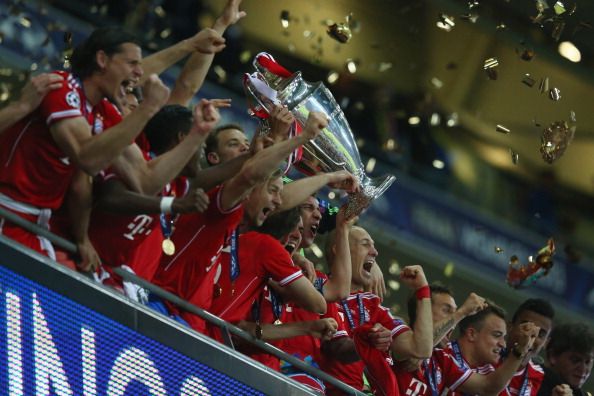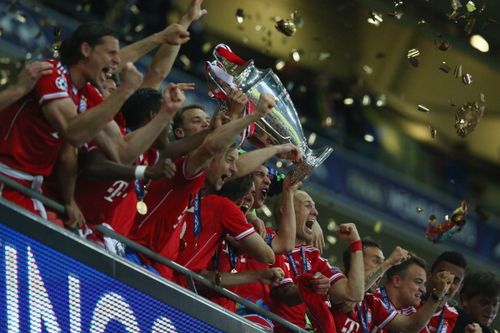
Bayern Munich: Passport to the German National Football team?

Manuel Neuer, Philip Lahm, Jerome Boateng, Bastian Schweinsteiger, Thomas Müller. Some of the guaranteed starters in the current German national football team. Go back a few years and Oliver Kahn, the two Bavarains, Lahm and Schweinsteiger(again), Michel Ballack, Lukas Podolski and Miroslav Klose pop up. For any football follower, rookie or not, it is common knowledge that apart from being prominent members of the national team, these players have also represented Bayern Munich. Of course, the likes of Ballack, Klose and Podolski moved on to supposedly greener pastures to ensure more playing time. However, it is no coincidence that their big break into the national team corresponded to their time at the Bavarian club. The question begs to be answered. Is Bayern Munich really the stepping stone to play for the Fatherland? While the country’s best players representing the best club in the country has been the trend, the tryst between Bayern and the German national team in recent years has been nothing short of transparent.
In the light of Mario Gotze‘s controversial transfer to Bayern Munich, there have been talks that money after all influences a modern day football player. However, could there be an underlying purpose to Gotze’s decision? Having won two successive Bundesliga titles, the DFB Pokal in 2012 and Champions League finalist in 2013, one can’t be blamed for harboring ill feelings about Gotze’s switch to direct rivals.
Bayern Munich is synonymous with German football. The most successful team, the most valuable in Germany and fourth in world football and having given German national football more players than any other team in recent memory. Any budding footballer dreams of representing his country one day and the latter fact shall play on his mind. Apart from the rich history and tradition, Bayern offers top training facilites, world class stadium and a handsome pay package. Coupled with these, the chance to play for Germany is a dream come true for any professional footballer. To break in to the first team at Bayern is no easy task however. Not only does one have a host of Germans to compete with, but also some of the best footballers around the planet. Having said that, the likes of Thomas Müller, Holger Badstuber, Bastian Schweinsteiger and Philip Lahm are now an integral part of the national team, all having come through the youth ranks at Bayern. The German influence at Bayern runs through its hierarchy. The chairman of the supervisory board Uli Hoeneß was a well established player during his playing days having made 239 appearances for Bayern and 35 for West Germany. Karl-Heinz Rummenigge, as many Germans are familiar with, played 310 times for the Bavarians and 95 times for West Germany, having appeared in 3 FIFA World Cups. He is currently the chairman of the Executive Board thus highlighting the dense German flavour at Bayern Munich. It is no rocket science to deduce the fact that a couple of commendable and influential seasons at Bayern could pave a player’s path to the national team. And it is safe to say that “if you’re good enough to play for Bayern, you’re good enough for Germany”.
Moving the spotlight back on Gotze. Are Bayern offering him a pay hike? Yes. How much? From 5 million euro a year at Dortmund to 7 million euro a year at Bayern. That is not staggering considering Gotze is Germany’s most promising youngster. During his short international career, he has had lesser starts than he would have preferred. He spent most of Euro 2012 on the bench. With the World Cup coming up in 2014 and Germany almost certain of qualifying, Gotze cannot be blamed for feeling hungry for a starting spot in the national team. So was it only the money that influenced the best German young talent who spends most of the time on bench during national duty? Think again.